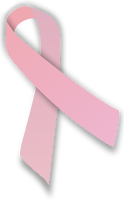Known nationwide as Breast Cancer Awareness Month, October is a great time to spread awareness and talk about the impact of this disease.
This information was provided to Cancer Services by Sandra Christal, a breast cancer survivor and longtime volunteer with Susan G. Komen, Cancer Services of Greater Baton Rouge and Sisters Supporting Sisters.
IMPACT OF BREAST CANCER
-A woman dies because of breast cancer every 69 seconds somewhere in the world … but the really good news is that there are approximately 2.5 million breast cancer survivors alive today.
-In the U.S., approximately 40,000 people die every year from breast cancer … that’s about the same as the number of people who die in all traffic/highway crashes in America. And, about 200,000 people are diagnosed with breast cancer annually.
-Louisiana leads the nation in breast cancer deaths. African American women are often diagnosed at a later stage in the disease than other ethnic groups.
-Men can get breast cancer, about 2000 die every year from the disease.
-Early detection is the most important factor in the cure rate for breast cancer. Approximately 90% of cases have no genetic or family link.
1. Know your risk
a. Talk to your family to learn about your family health history
b. Talk to your doctor about your personal risk of breast cancer
2. Get screened
a. Ask your doctor which screening tests are right for you if you are at a higher risk
b. Have a mammogram every year starting at age 40 if you are at an average risk
c. Have a clinical breast exam at least every 3 years starting at age 20, and every year starting at 40
3. Know what is normal for you
a. See your health care provider right away if you notice any of these breast changes:
i. Lump, hard knot or thickening
ii. Swelling, warmth, redness or darkening
iii. Change in the size or shape of breast
iv. Dimpling or puckering of the skin
v. Itchy, scaly sore or rash on the nipple
vi. Pulling in of your nipple or other parts
vii. Nipple discharge that starts suddenly
viii. New pain in one spot that does not go away
4. Make healthy lifestyle choices
a. Maintain a healthy weight
b. Add exercise into your routine
c. Limit alcohol intake
 On September 19th, over 60 breast cancer survivors* gathered at Cancer Services to celebrate Breast Cancer Awareness Month. Held in partnership with Woman’s Hospital, the attendees enjoyed lunch and the company of fellow survivors, caregivers, family and friends.
On September 19th, over 60 breast cancer survivors* gathered at Cancer Services to celebrate Breast Cancer Awareness Month. Held in partnership with Woman’s Hospital, the attendees enjoyed lunch and the company of fellow survivors, caregivers, family and friends.  Adult Programs Coordinator Natalie Depp added, “This was a great opportunity to show that at our support groups we don’t just talk about problems and sad emotions but share friendships and celebrate where our clients are in their cancer journey.”
Adult Programs Coordinator Natalie Depp added, “This was a great opportunity to show that at our support groups we don’t just talk about problems and sad emotions but share friendships and celebrate where our clients are in their cancer journey.” 





